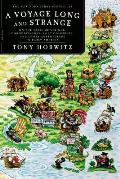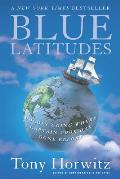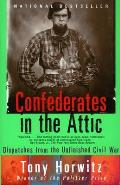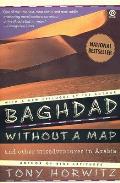
Yesterday we left off on the subject of 16th-century swine, which just goes to show the relevance of history. So click on the book cover to your right, add to cart, and proceed immediately to checkout!
I feel compelled to say this, because the book tour I'm not blogging about is beginning to look like a CDC watch list. My next stop is Virginia, home of ham, and I'm also headed for Chicago, Hog Butcher for the World, St. Louis, famed for its brats and pork steak, and Buffalo, where I'm staying at the home of a sausage magnate.
Yes, I've heard: eating pork has nothing to do with the flu formerly known as swine. Tell that to the Egyptians, who know from plagues and yesterday started slaughtering their 300,000 pigs. Meanwhile, next door in Israel, where pork is made kosher by calling it "white steak," there's already been a swine-flu case.
So I'll be laying off the bacon, though a pig will appear later in this blog post. I've decided to close out the week by sharing some tips about writing. An earlier guest blogger, Darin Strauss, did this to great effect. The difference is that Darin is not only a talented novelist and screenwriter, but also a writing teacher who cited two writing professors he studied under. I've never written fiction, at least not intentionally; I have almost no writing-class experience as either a teacher or student, apart from a year of journalism school, where I learned the basics of news reporting on a manual typewriter; and I'm queasy about discussing "craft," which brings bad memories for me of making popsicle-stick forts at summer camp.
So most of what I'm offering below comes from a chaotic quarter-century of on-the-job training as a journalist and author, much of it spent on the road. With that warning label affixed, here are eight random tips for wannabe non-fictionists.
 1. Reporting and Research Uber Alles
1. Reporting and Research Uber Alles
Good writing flows from good material. This may seem obvious, but it can't be said enough. When I'm struggling at the computer, it's not because I'm "blocked." It's because I don't have enough material, or the right material. No amount of cleverly-crafted prose can hide the holes in an under-reported story, unless the writer is one of those very rare stylists who can spin nothing into gold.
2. When You Find Great Material, Milk It
This follows naturally from tip #1. As a cub reporter, I learned to scoop up facts, grab a punchy quote or two, and race back to the office to make my deadline. This is a handy skill (or once was), but it translates very poorly to long-form nonfiction. To carry a scene over many pages, rather than a few paragraphs, you need immense amounts of detail and texture. This means finding a rich subject and then hanging around, and hanging around, until you've noted everything, from drape fabric to room tone. Don't leave until you're forced to. Then come back again. And if you're interviewing someone, ask for a tour of the office, or a drive, or anything that will extend your stay and give you some movement and color to wrap all the quotes around.
3. Start Writing As You Report and Research
This may seem to contradict the previous two points, but writing from the start is how I figure out the quality of what I've got. The writing I'm speaking of here isn't grade-A prose, in fact it's usually dreck: typically, whatever I spit out late at night in my motel room after looking over that day's research. Often, while doing this, I'll spot a character or setting that strikes me as a possible opening or connective thread for an article or chapter. Except that I don't have the depth of material I need to make it sing. So I know I need to go back for more. Alternatively, in this spit-up phase, I may find that material I thought was crucial to my story simply doesn't work on the page. I have the goods, but they're no good. Which leads to the next tip.
4. The Recycle Bin Is a Writer's Best Friend
All writers know to discard, discard, discard. But it's the injunction we most often violate. Why? Because we all fall in love with our own material, and it's hard to kill the thing you love. Particularly if you've spent immense amounts of time or labor or money to get it.
The best reporting and research requires a wide-open mind and spirit. You need to be game for whatever or whoever comes your way, and vacuum up every dust pile and hairball in your path, just in case. Writing requires the opposite. You need to be absolutely ruthless. If some part of your material doesn't move the story along, if it doesn't serve the reader, it's got to go, no matter how many mountains you climbed to get it, no matter how many officials you bribed, no matter how much torment and dysentery you endured. Nothing is sacred.
Annie Dillard captures this in her lovely book The Writing Life, in which she likens book-writing to building a sound house.
You tap the walls, lightly, everywhere. Some of the walls are bearing walls; they have to stay, or everything will fall down. Other walls can go with impunity; you can hear the difference. Unfortunately, it is often a bearing wall that has to go. It cannot be helped....The part you must jettison is not only the best written part; it is also, oddly, that part which was to have been the very point. It is the original key passage, the passage on which the rest was to hang; and from which you yourself drew the courage to begin....There is only one solution, which appalls you, but there it is. Knock it out.
 5. Begin with a General Idea, Not a Fixed Plan
5. Begin with a General Idea, Not a Fixed Plan
I learned this as a foreign correspondent in war-torn or chaotic lands. I'd fly off to a city like Khartoum, carrying a careful list of people to meet and places to go. Then, within hours of arriving, my itinerary would be in tatters, due to downed telephone lines or martial law or the bogus nature of the information I'd gathered in advance. I was forced to improvise, which usually meant wandering around aimlessly, and more often than not I'd stumble into a story much better than the one I'd set out to report.
This m.o., or lack of one, became instinctive and carried over to my book-writing. With each new project, and each chapter of it, I try to know just enough to get started and then dive in. That way, I'm not locked into an approach or outline. I follow my nose, sniffing for intriguing leads and characters. Also, the terror of arriving in a new place, without a plan, forces me to chat up strangers and explore avenues I might otherwise not. By the second or third day, I've usually found a promising angle or person I can build my story around. And the search itself often makes for good copy. As every traveler knows, the more wretched and anxious the journey, the better the story afterwards.
6. Always Visit the Places and People You're Writing About
Again, this may seem painfully obvious, but in the era of Google Earth and texting and Skype and all the other tools that allow us to communicate and experience things instantly, it's easy to talk yourself out of first-hand contact. Why spend time and money going to interview someone in person, or to see a certain location, when you can get what you need without leaving your computer?
Because you always get more in the flesh. Most interviewees are more comfortable and open once they've seen the whites of your eyes. A natural sense of obligation and hospitality sets in. They'll give you more time, and better-quality time, than you'll get on the phone or email. The atmosphere of their home or office, and their body language, will tell you things you couldn't know otherwise. They may invite you to stay for a meal, or meet someone else, or show you a document they didn't mention on the phone. So just go, even if you think you don't need to.
The same applies to places, and not only because you'll be able to describe them more accurately and vividly after visiting. By going, you almost always stumble on scraps and sometimes gems that can't be gleaned from your reading or on-line research. I could give a thousand examples, but here's one. While researching Confederates in the Attic, I visited the Chancellorsville battlefield, where Stonewall Jackson was mortally wounded in 1863. I'd read many accounts of this famous event, and didn't think the sprawl-choked and heavily touristed Virginia battlefield would offer up fresh insights. But during my visit, I learned by accident from a ranger that Stonewall's amputated arm lay buried on a nearby farm, with its own grave and monument. This wasn't advertised in park literature or anywhere else. So I ended up seeing a bizarre and little-known Confederate shrine and having great fun with it in my book.
 7. When There's No Wind, Row
7. When There's No Wind, Row
Many people think of writing as a romantic or mystical pursuit. They imagine writers adjusting their auras, or waiting for the drink or drugs to kick in, and when inspiration strikes the words cascade out, as they allegedly did for Samuel Taylor Coleridge after he conjured "Kubla Khan" in an opium dream.
This has never happened to me, and not for lack of trying. Nor has it happened to anyone I know. Ninety percent of writers, I think, would give the same advice about how to get a book done. Sit your butt in the chair for as many hours as you can and just write. Put one word down and then another and then another. A writer whose name I can't now recall once likened what he did to laying pipe. Most of the time, it's slow and unglamorous labor.
Like any other job, you also need to keep doing it even when you're not in the mood. Flat as atack. So unable to construct a sentence that you wonder if you've had a stroke. In fact, most weeks I feel that way for the first few days. Only by slogging on at such times do I finally hit my writing stride and manage decent work by the end of the week. I seem to need that few days of futility to get untracked. Then, most Mondays, I'm back on the hamster wheel again.
8. Mind the Old Masters
Read the opening of Truman Capote's In Cold Blood and E. B. White's essay, "Death of a Pig." Read them again. Write like that. Keep going.
In just three pages about a forlorn Kansas town, Capote sets the stage and draws you in with tremendous economy, tension, and descriptive power. It's very hard to read that opener and not want to keep reading.
The same goes for the classic first line of White's piece:
I spent several days and nights in mid-September with an ailing pig and I feel driven to account for this stretch of time, more particularly since the pig died at last, and I lived, and things might easily have gone the other way round and none left to do the accounting.
By the end of White's piece, you're thoroughly engrossed in the fate of an anonymous pig, even though you knew he was going to die from the first line.
Of course, we can't all write like that. Almost no one can. Which is why it's also useful to heed the writing advice of America's greatest cynic, Ambrose Bierce: "If one can not do great work it is worth while to do good work and think it great."
And that's where I'll end.
If you want to stay posted and see where I’ll be on the swine tour, visit www.tonyhorwitz.com.